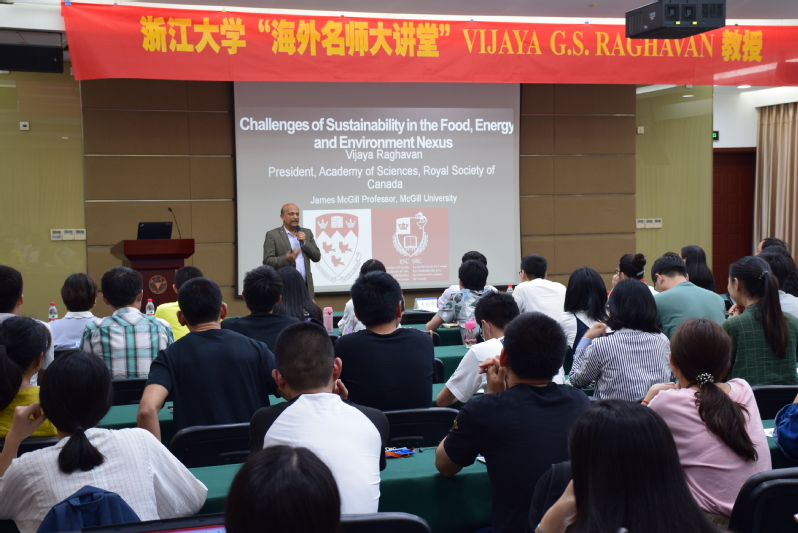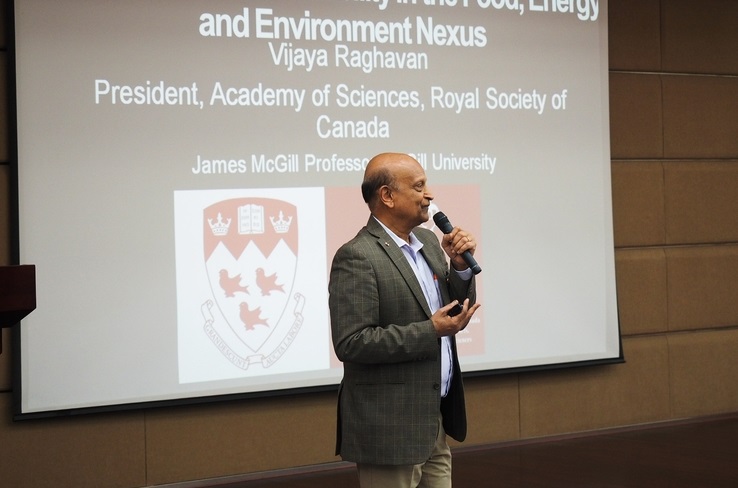Professor speaks on challenges of sustainability in food, energy and environment nexus
A holistic approach of bioprocessing will be beneficial for addressing the issues brought forth by climate change, the President of Academy of Sciences, Royal Society of Canada said on Tuesday during a lecture to ZJU faculty and students.
“Sustainability is the key towards building a secure future with respect to food, energy and the environment,” said Prof. Vijaya Raghavan.

The lecture, part of the Zhejiang University Global Lecture Series, took place at ZJU’s Zijingang Campus on May 29. The lecture was chaired by ZHU Songming, a professor in ZJU’s College of Biosystems Engineering and Food Science.
Prof. Raghavan believed that climate change is “imminent, and not something to worry about later”. Climate change is now having an impact on food production, both in developing countries and in developed countries. He introduced several practices in Canada to handle it from the perspective of food system.
“How can bioprocessing help mitigate the negative impacts of climate change?” Four aspects of the problem-solving process, namely food security, food safety, bioenergy and biofibers, were mentioned during the lecture.
Under current production system, post-harvest losses account for over 50 percent of food losses. To reduce food losses, storage conditions should be improved and technologies of storage should be developed, according to Prof. Raghavan.
Prof. Raghavan compared the thermal and non-thermal methods of food processing, suggesting that both food output and food safety should be taken into consideration. Scientists could use computers to simulate physical movements of atoms and molecules and make molecular models. They might be crucial in the study of food quality and the mechanism of food allergy.
He also noted the improper treatment of garbage, of which more than half is landfilled. He listed some technologies to deal with the garbage issue, like developing biomass to bioenergy, biowaste pyrolysis. Besides, Prof. Raghavan asserted that technologies using microwaves have great potential in the future.

During the lecture, Prof. Raghavan also talked about his experience of cooperating with Chinese institutes and called for future collaboration. He also encouraged young students and scholars to pursue their dreams and work for the well-being of the whole human society.
“Every human can be an excellent human, but we have to work hard to get there,” he said.
Prof. Raghavan is an experienced researcher in soil compaction and post-harvest technologies. He is currently a James McGill professor working at Faculty of Agricultural and Environmental Sciences, McGill University.
Image Credit: SHEN Deyao
Writers: XU Weiqin, School of International Studies; YIN Fan, College of Media and International Culture; ZHANG Xiang, School of Medicine